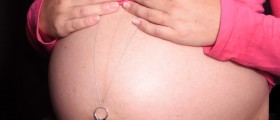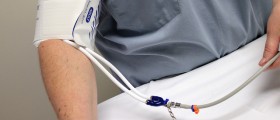
The percentage is even greater in developing countries and up to 18% of pregnancies end up with stillbirth or early neonatal deaths.There is still no strong proof why preeclampsia occurs but the experts believe that a woman who was normotensive before 20 weeks’ gestation include a systolic blood pressure higher than 140 mm Hg and a diastolic BP higher than 90 mm Hg on 2 successive measurements. These measurements were performed with no more than 4 or 6 hours apart. A doctor will diagnose preeclampsia in women whose SBP increased by 30 mm HG or DBP increased by 15 mm HG.
Mild and severe preeclampsia
In all preeclampsia cases, 75% of them are considered to be mild, while the remaining 25% are thought to be severe cases. In worst cases, a woman may experience liver or renal failure and even central nervous system abnormalities. If seizures are present, the case has then become eclampsia.
Doctors will diagnose mild preeclampsia in cases when hypertension is present in 2 successive measurements but without end-organ damage in the patient. In case of severe preeclampsia, a person needs to experience at least one of the several symptoms. Some of the symptoms are persistent headaches, thrombocytopenia, placental abruption and pulmonary edema or cyanosis.
Classification and characteristic of hypertensive disorders
Experts have classified hypertensive disorders into four classes. These classifications are gestational hypertension, chronic hypertension, preeclampsia or eclampsia and superimposed preeclampsia.People should know that these disorders may appear individually, but experts believe that they are progressive manifestation of a single process and share a common etiology.
In case of gestational hypertension, a woman needs to have a BP of 140/90 mm Hg or higher for the first time during pregnancy. She must not have proteinuria, the BP must return to normal after a period of 12 weeks’ postpartum and the final diagnosis need to make only postpartum.
- healthfinder.gov/api/Outlink/Search/http/www.preeclampsia.org/health-information/faqs?_label_=http%3A%2F%2Fwww.preeclampsia.org%2Fhealth-information%2Ffaqs
- www.nhs.uk/conditions/pre-eclampsia/complications/
- Photo courtesy of pilirodriguez by Wikimedia Commons: commons.wikimedia.org/wiki/File:La_preclampsia.JPG

















Your thoughts on this
Loading...